Global Olive and Olive Oil Production
The global olive and olive oil industry is largely dominated by Mediterranean countries, as reflected in
data from the International Olive Council (IOC) and other reliable sources. Table 2 showcases
global olive grain production from 2012 to 2021. Spain stands out as the top producer, consistently
achieving high production levels, with peaks such as 9,820 thousand tonnes in 2018 and 9,276
thousand tonnes in 2013. Italy and Greece also maintain significant production figures. Importantly,
Türkiye demonstrates steady contributions, peaking at 2,100 thousand tonnes in 2017. This positions
Türkiye as a crucial player, underlining its consistent ability to support global supply.
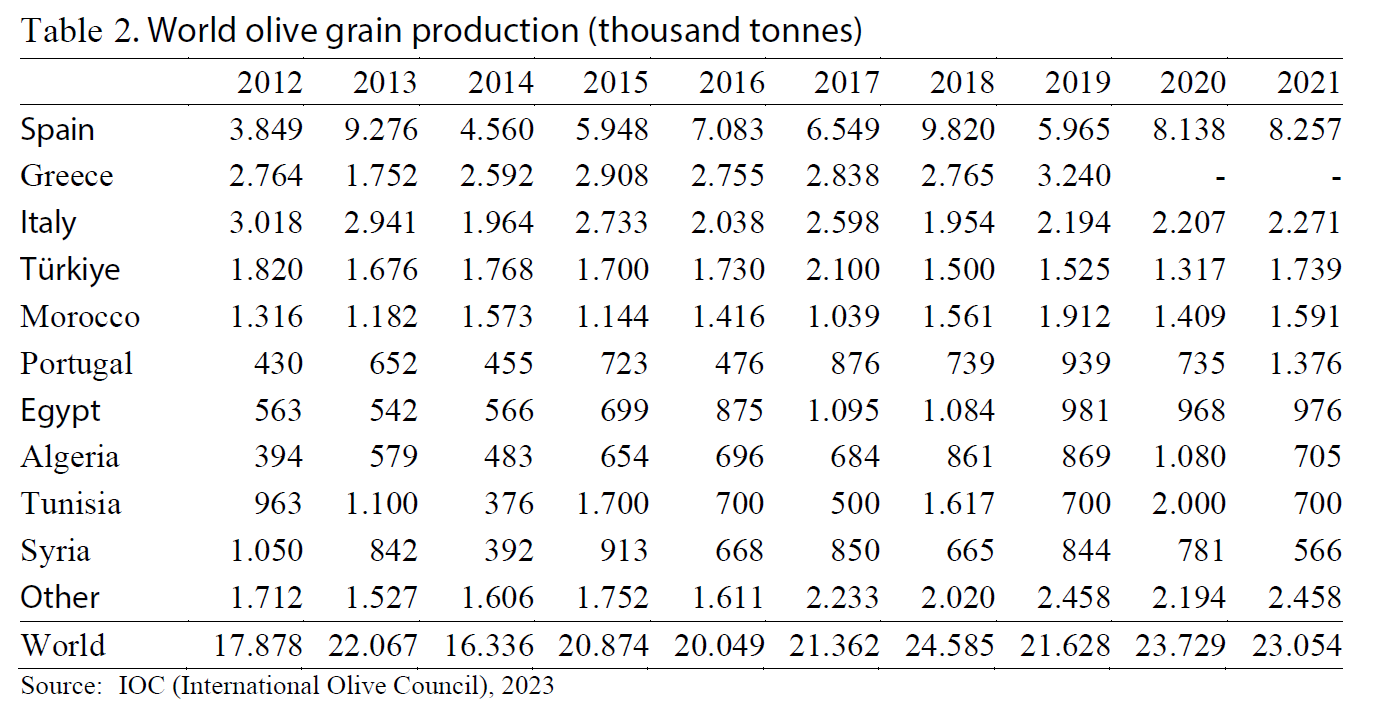
Table 3 highlights global olive oil production from 2012 to 2022, confirming Spain’s dominant role, particularly in the 2021/2022 season when it produced 1,492 thousand tonnes, representing 43.9% of the total global output. Italy and Greece follow Spain, while Türkiye contributes significantly, with 235 thousand tonnes in the same season. This data is reinforced by Graph 2, which illustrates the proportion of global olive oil production, where Türkiye holds a notable share of 6.9%. Such statistics emphasize Türkiye’s important and growing influence in the international market.
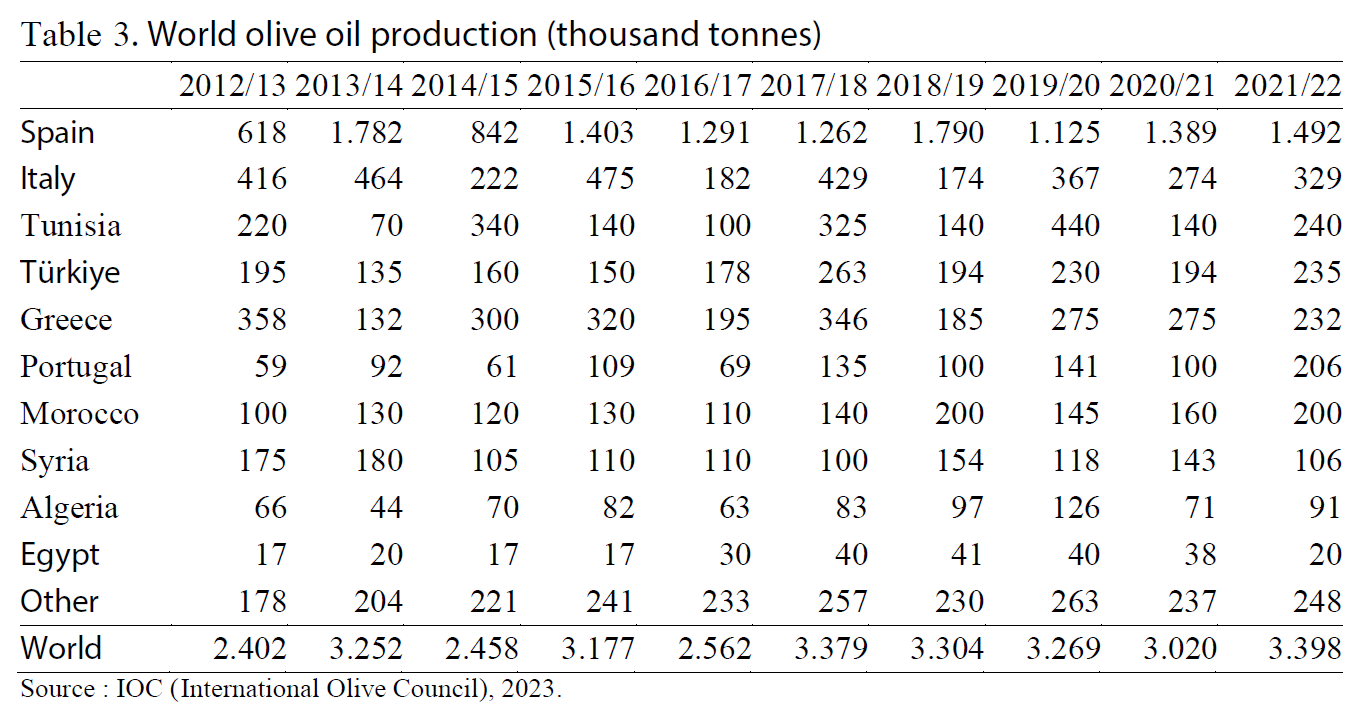
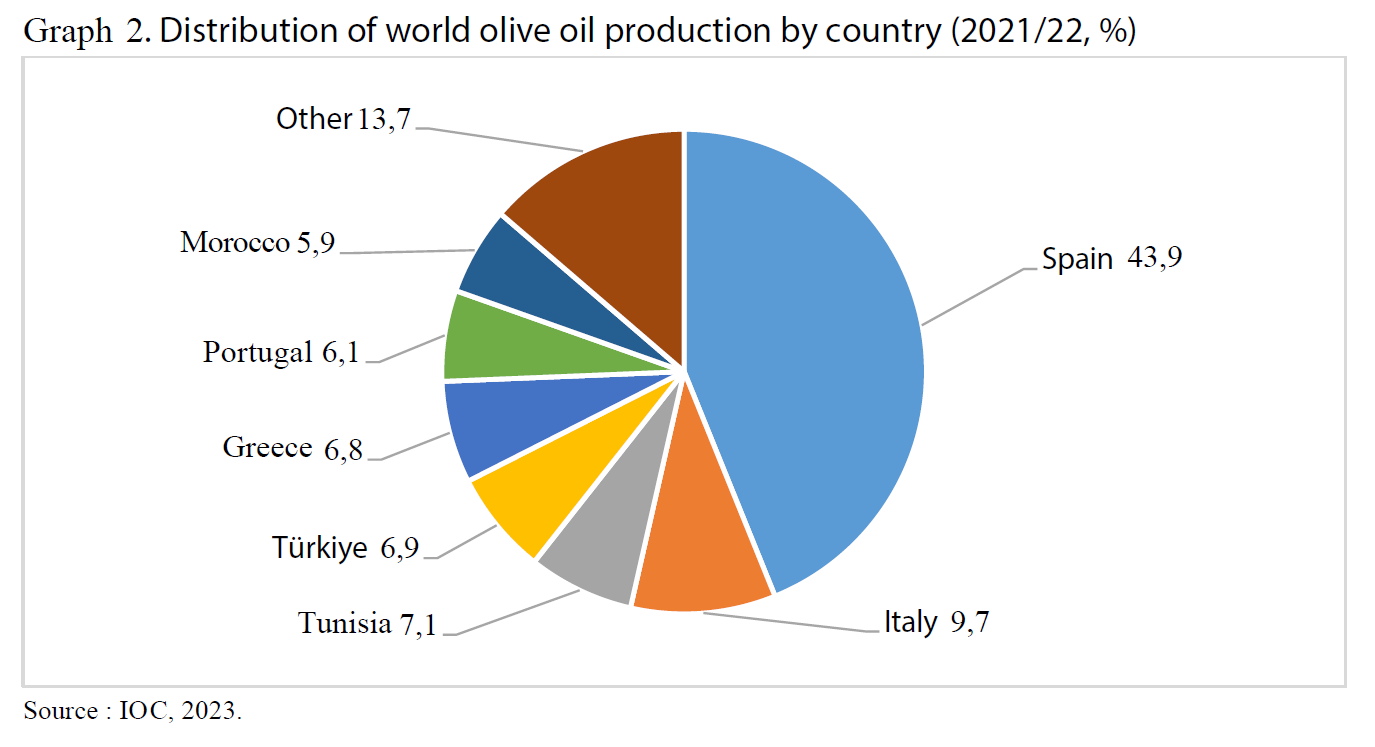
Table 4 outlines global table olive production between 2012/2013 and 2021/2022. Spain continues to lead, producing 660 thousand tonnes in the 2021/2022 season (22.9% of the global total). Egypt and Türkiye follow, with Türkiye contributing 450 thousand tonnes, accounting for 15.6% of global production. This is visually depicted in Graph 3, which highlights Türkiye’s substantial share alongside other leading producers.
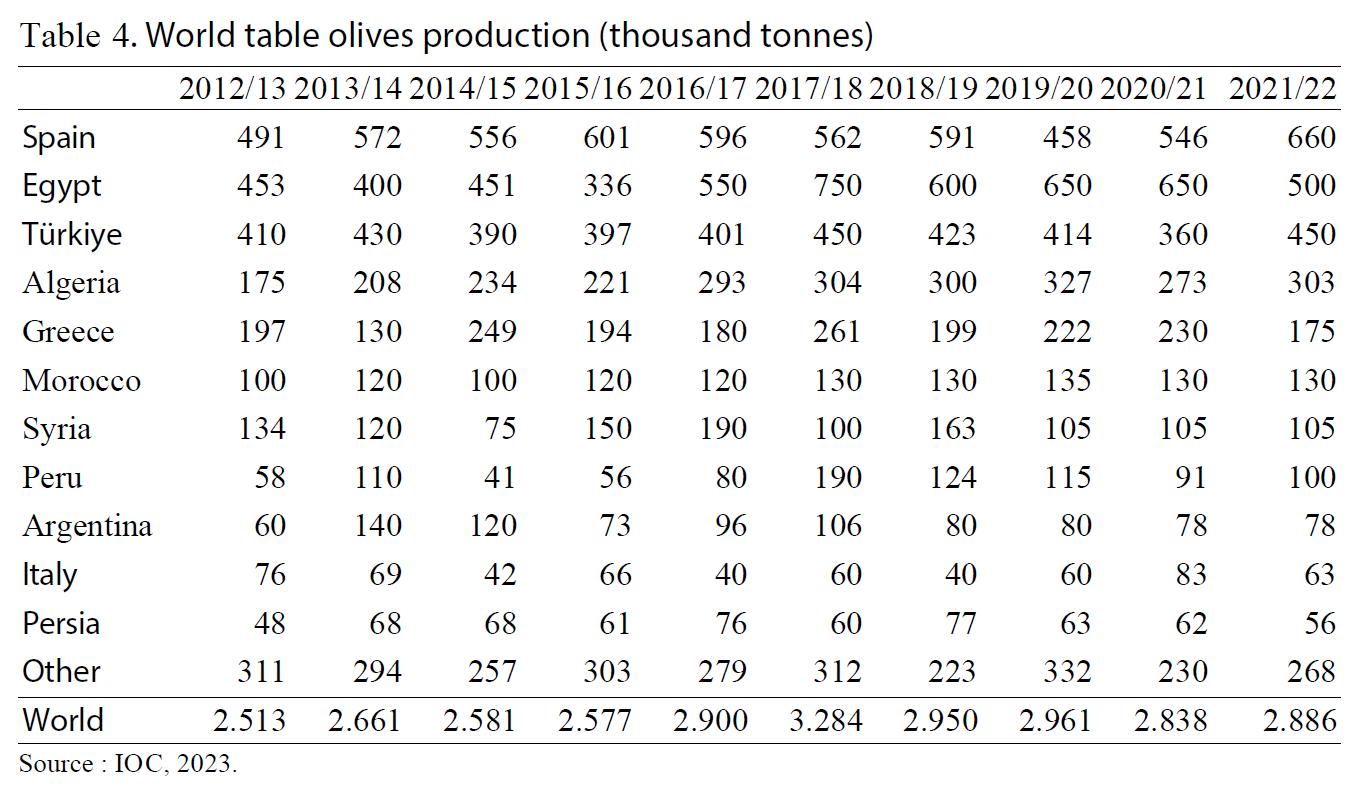
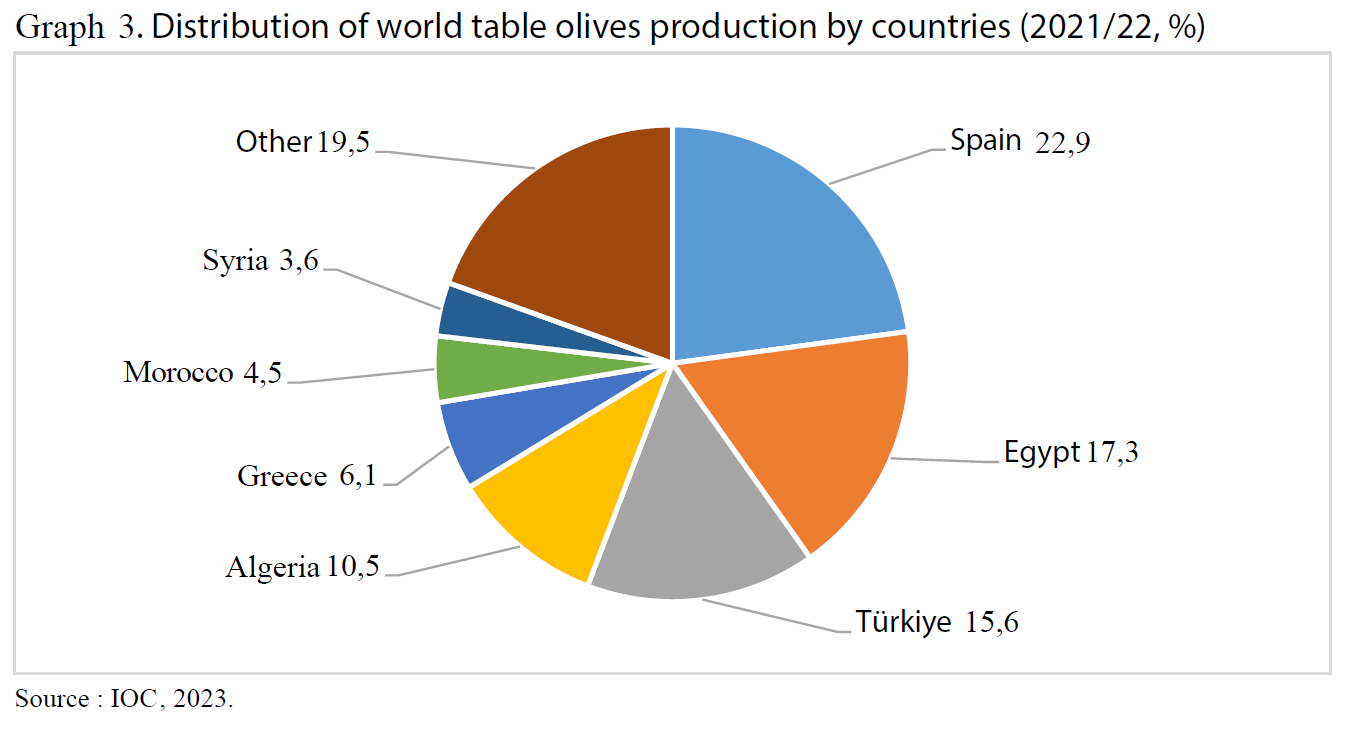
Olive and Olive Oil Production in Türkiye
Türkiye plays a pivotal role in the olive and olive oil industry, as demonstrated by regional and national data sourced from TÜİK, which provide comprehensive insights into the country’s contribution to global and regional production. Table 15 provides insight into olives for oil production by provinces from 2013 to 2022. İzmir emerges as the leading province, producing 410 thousand tonnes in 2022, followed closely by Aydın with 249 thousand tonnes and Muğla with 225 thousand tonnes. This data points to the Aegean region’s significant contribution to Türkiye’s olive oil production, a fact further supported by Graph 14, which shows a total production of 2.038 million tonnes for oil in 2022.
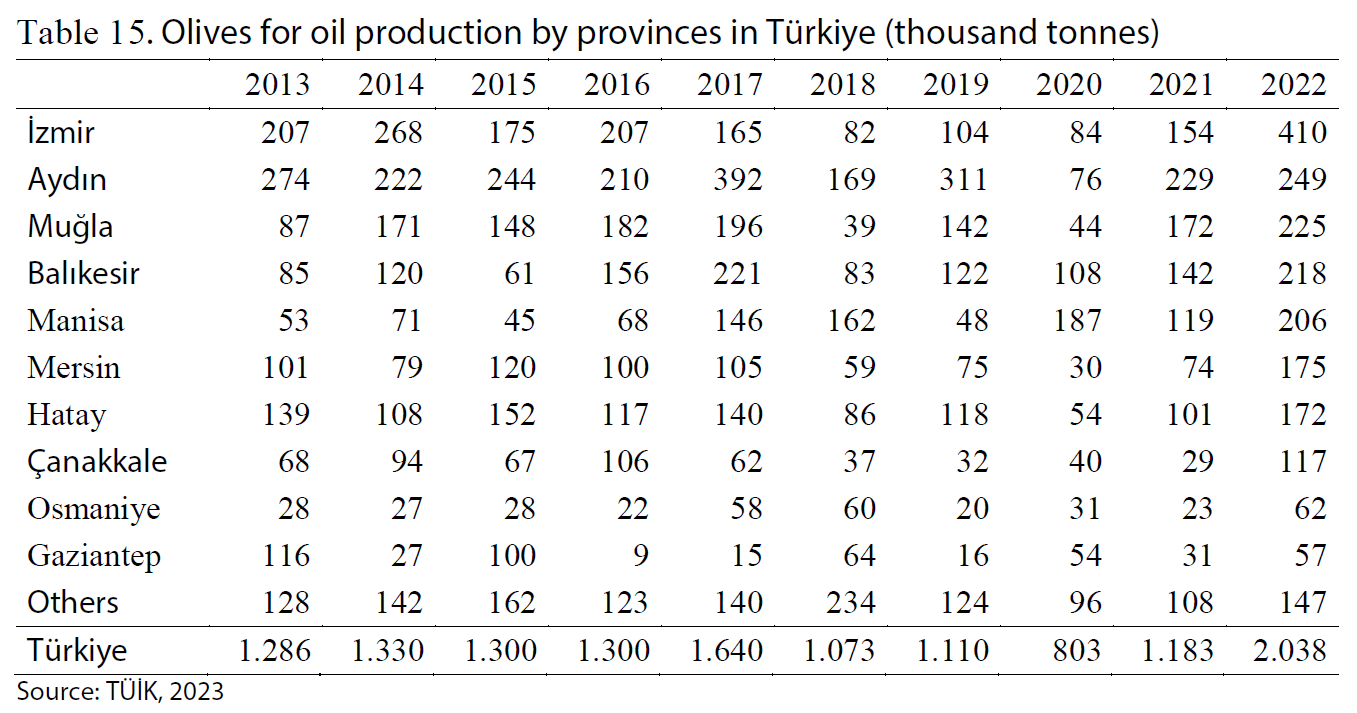
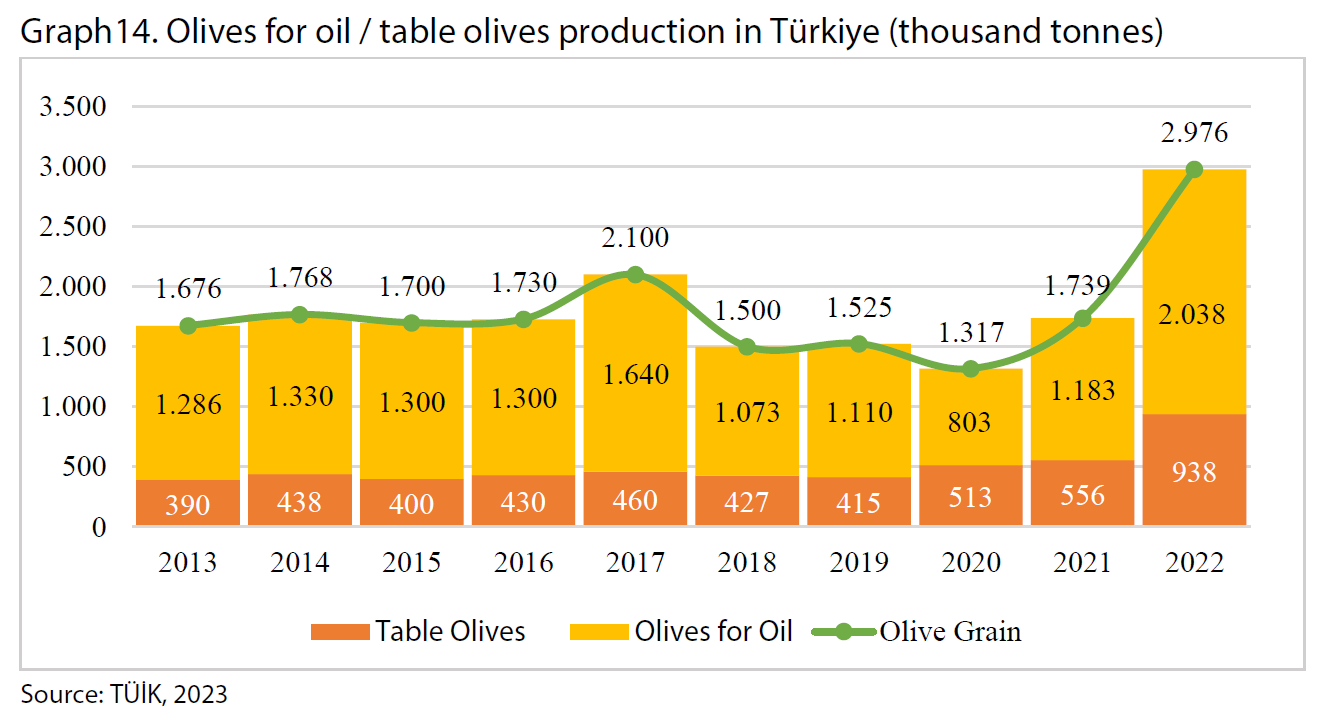
Table 16 focuses on table olive production, where Manisa is the top producer with 213 thousand tonnes in 2022, followed by Bursa (188 thousand tonnes) and Mersin (182 thousand tonnes). Graph 18 highlights Manisa’s leading 26.2% share of orchard areas for table olives, emphasizing its importance in this sector. Aydın also plays a significant role in both oil and table olive production, contributing 19.2% of orchard areas for oil olives, as depicted in Graph 16, which also shows Muğla (14.3%) and İzmir (13.2%) as key regions.
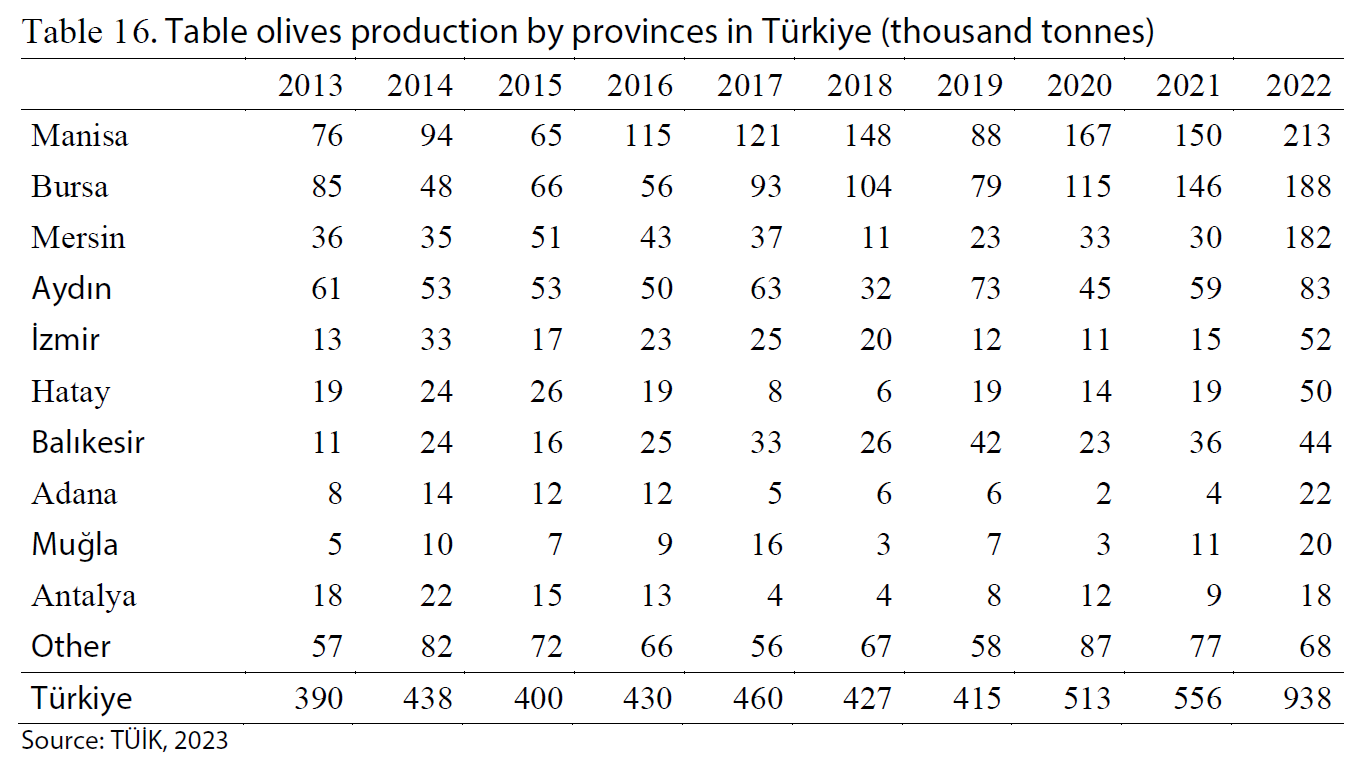
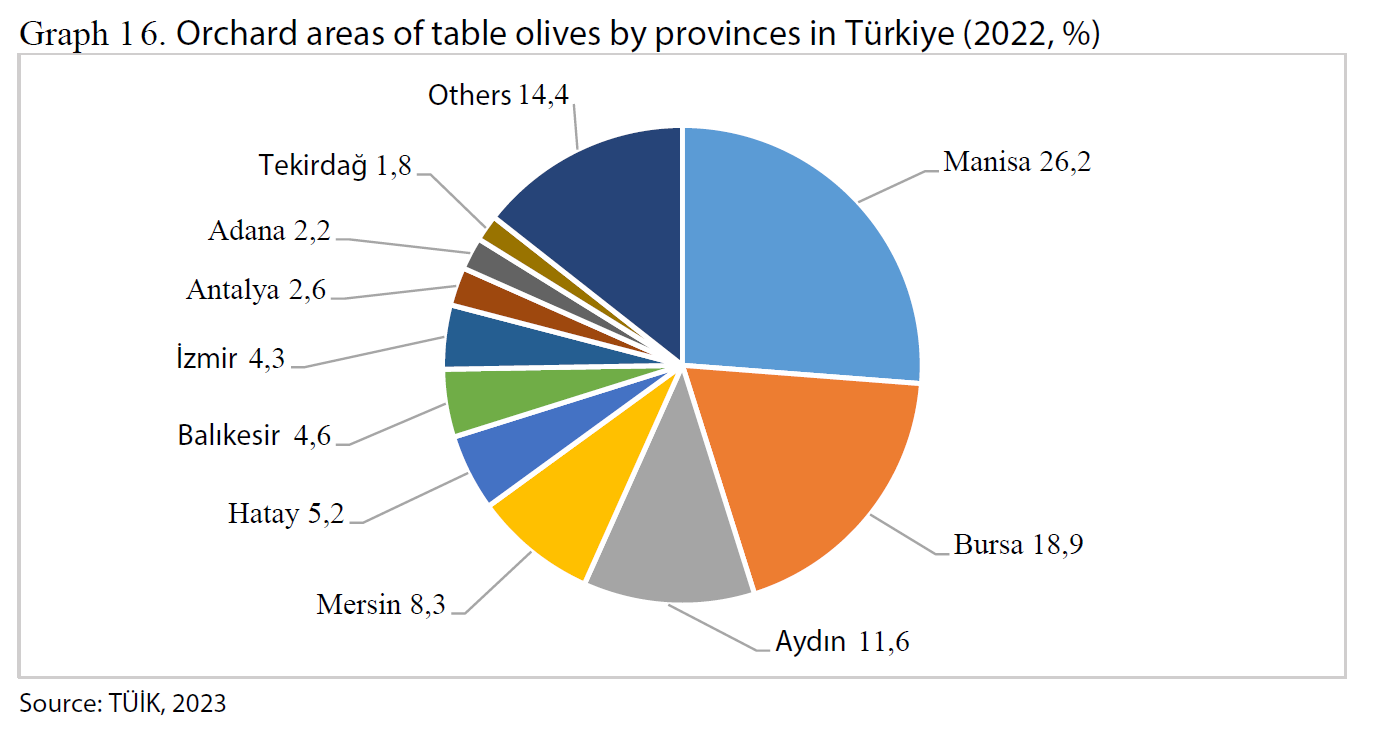
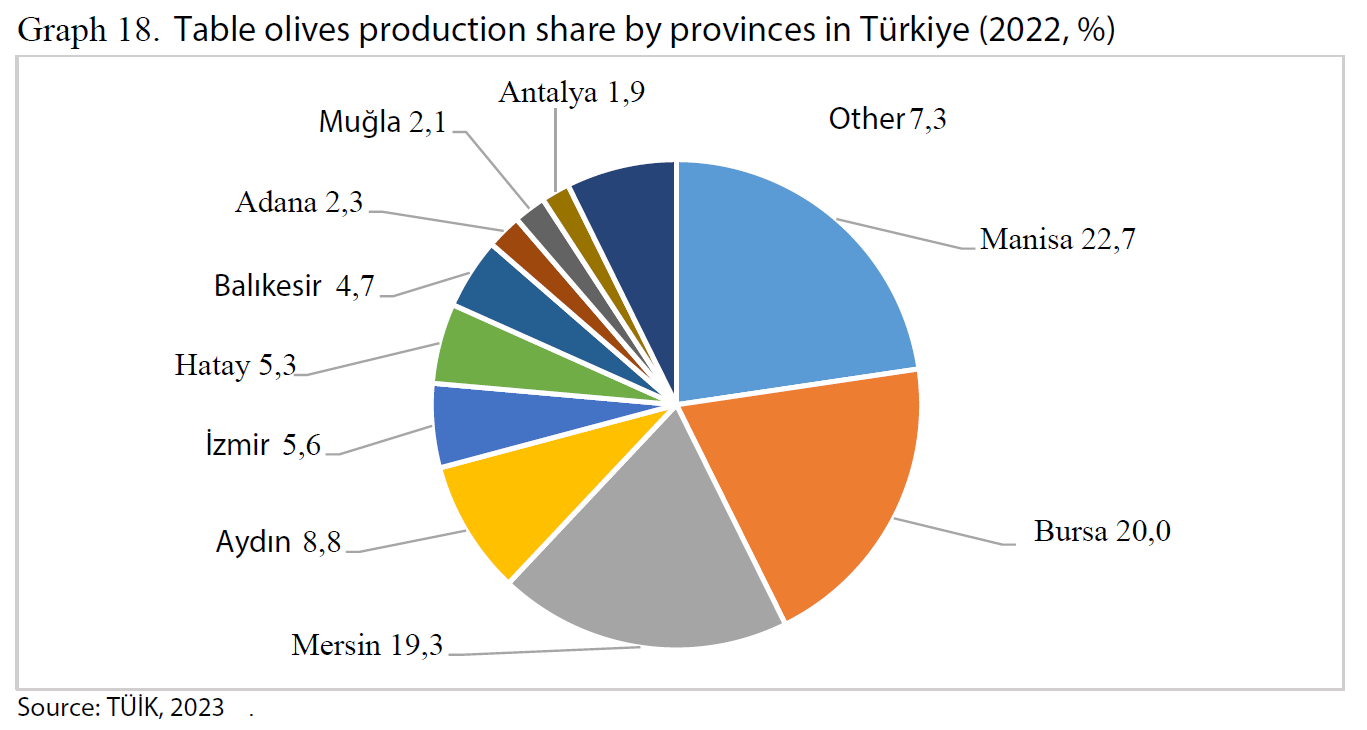
Graph 15 illustrates the distribution of orchard areas for olives for oil by province in 2022, with Aydın holding 19.2%, followed by Muğla (14.3%) and İzmir (13.2%). This data aligns with the production figures in Table 15 and demonstrates the regional specialization within Türkiye. Graph 17 provides a detailed view of production shares by province, with İzmir leading at 20.1%, Aydın following at 12.2%, and Muğla at 11.0%. This reinforces the importance of the Aegean region, particularly Aydın, as a stronghold of Türkiye’s olive and olive oil production.
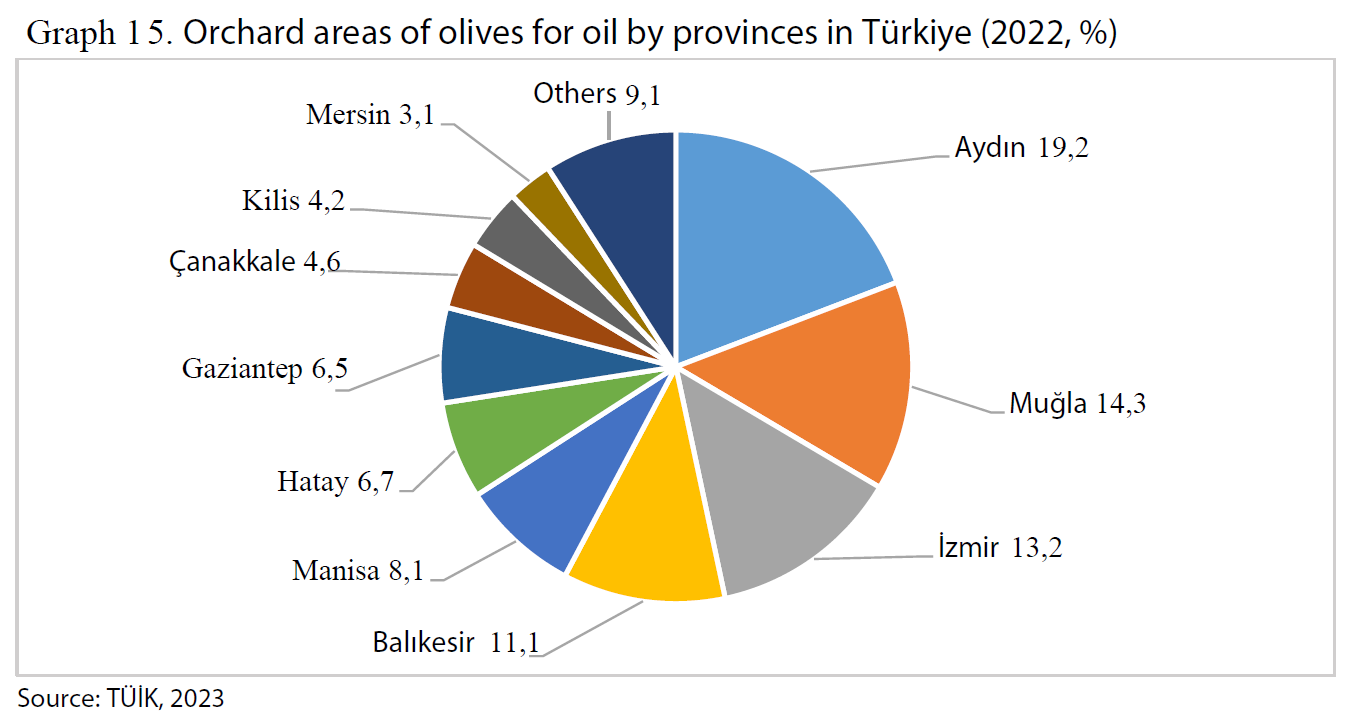
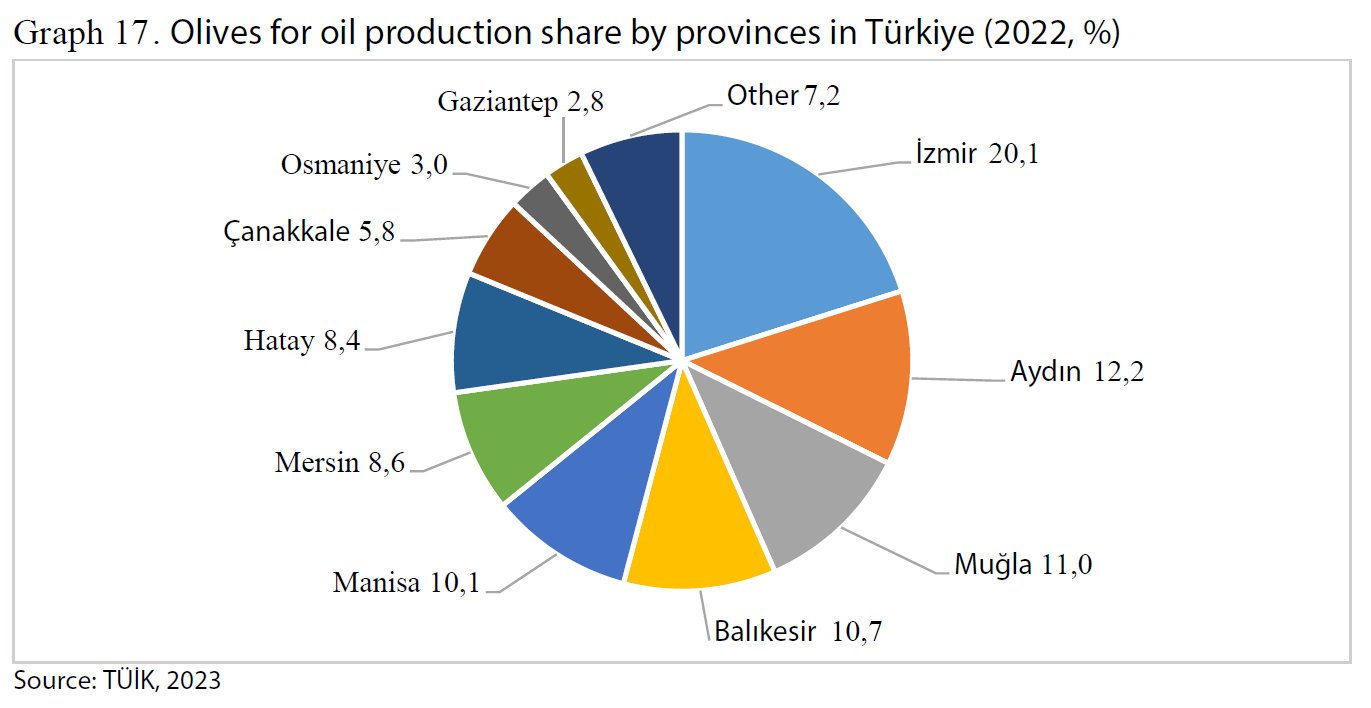
The SOLIVEO project, aims to strengthen Türkiye’s role in the global olive oil and table olive markets through sustainable practices. Data from the IOC and TÜİK show that Türkiye, particularly the Aegean provinces of İzmir, Aydın, and Muğla, has a strong position in both global and regional olive production. These regions benefit from a favourable climate, fertile soil, and long-standing agricultural traditions, making them ideal for olive cultivation.
SOLIVEO builds on these advantages by promoting sustainable farming practices that combine traditional knowledge with modern techniques. Through workshops, training programs, and community participation, the project helps local farmers improve their production methods while protecting the environment. This approach supports high-quality production and sets an example of responsible farming.
By helping farmers adopt better practices, SOLIVEO ensures that Türkiye remains competitive in global markets. The project empowers local communities, maintains production quality, and reinforces Türkiye’s reputation as a leader in sustainable olive production. These efforts contribute to the country’s economic growth and set a standard for environmentally friendly agriculture.
